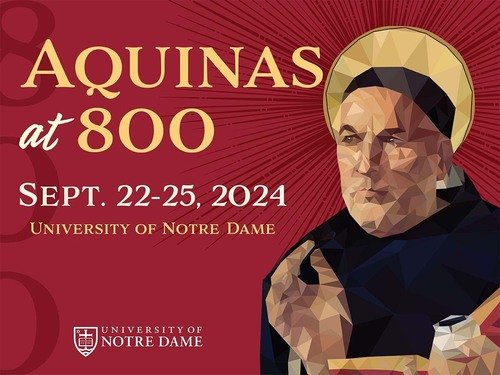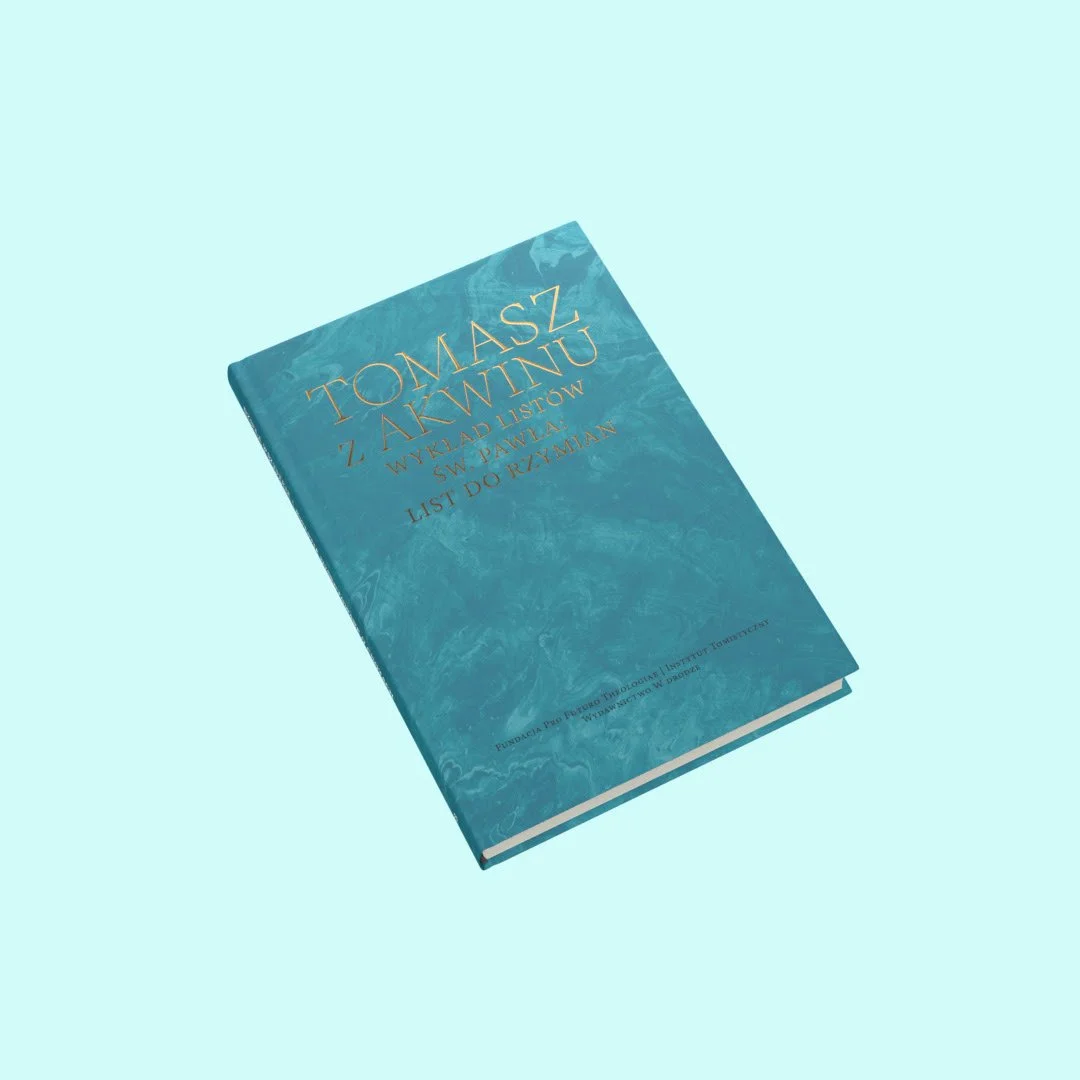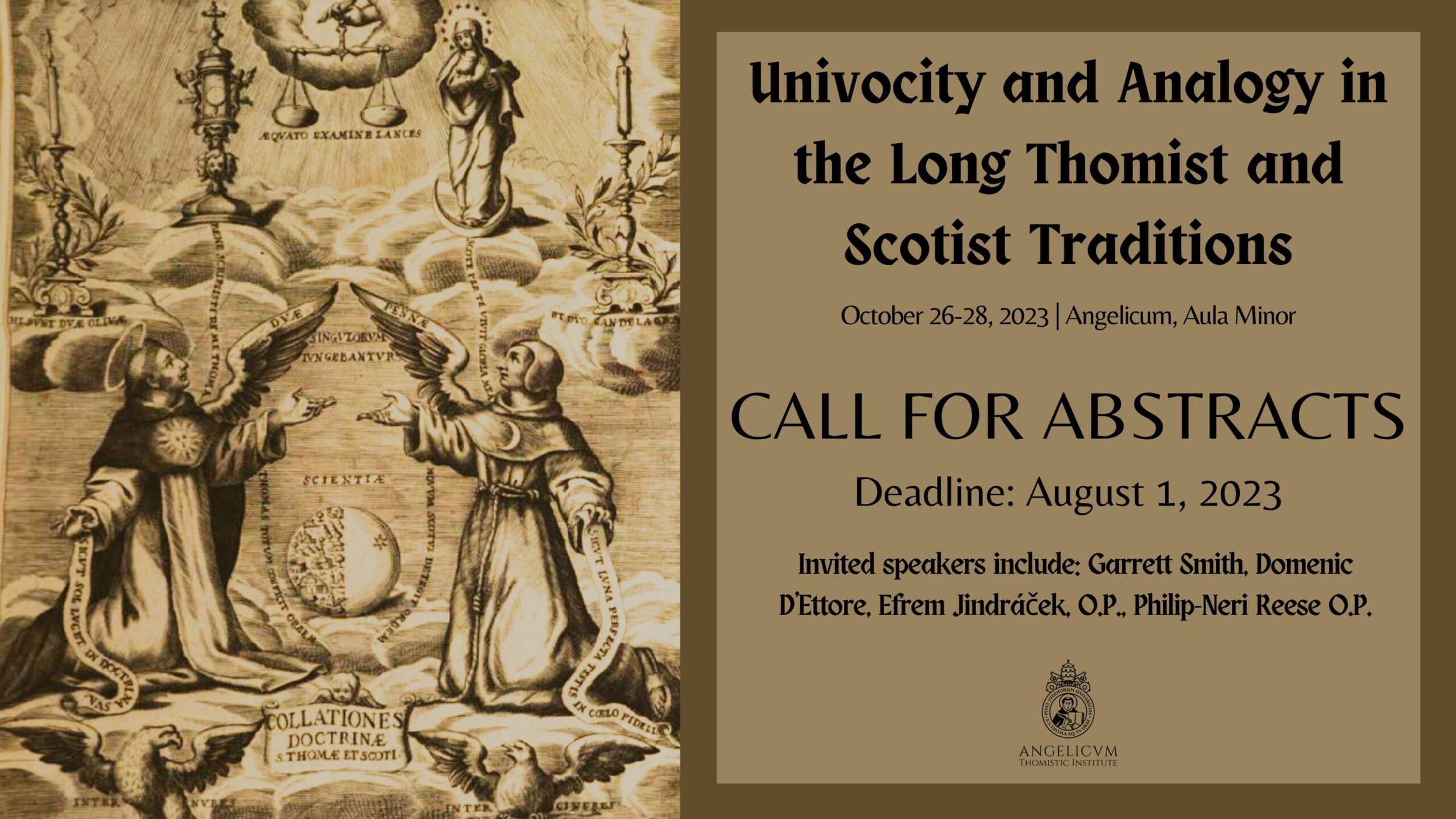On September 11, 2023, Msgr. John F. Wippel, the Theodore Basselin Professor of Philosophy at The Catholic University of America, passed away after a brief illness following his nintieth birthday. Born in rural Ohio in 1933, he studied at The Catholic University of America and Louvain, and became known for his field-defining scholarship on Thomas Aquinas’s metaphysics and on the later thirteenth-century thinker Godfrey of Fontaines.
His monographs The Metaphysical Thought of Thomas Aquinas: From Finite Being to Eternal Being (2000) and The Metaphysical Thought of Godfrey of Fontaines: A Study in Late Thirteenth-Century Philosophy (1981) are staples in the field of medieval metaphysics. His numerous articles, many of which are collected in a series of three volumes published through CUA Press in recent years, encompass a wide swath of topics, including the role of separatio in discovering the subject matter of metaphysics, Radical Aristotelianism and the Parisian Condemnations, accidental forms, the separated soul, the virtue of justice, truth, the divine ideas, faith and reason, participation, axioms, creation, and esse—just to name a few. At the time of his death, he had been working on the writings of Siger of Brabant.
A truly great scholar, Wippel was unquestionably one of the most important interpreters of medieval metaphysics of recent decades. But he also shaped the medieval field in other ways, as a founding member and later president of the Society for Medieval and Renaissance Philosophy, as an ordinary member of the Pontifical Academy of St. Thomas Aquinas, and, most importantly, as a decades-long force in the PhD program of the School of Philosophy at CUA—and someone who was absolutely committed to his students, to whom he was always “Fr. Wippel.”
—
When I first met Fr. Wippel, entering the program as a new graduate student in the fall of 2005, he had already been teaching at CUA for over forty years. Eight of those were spent in administration, including as university provost in 1996–97. Arriving on the postwar scholarly scene in a Thomistic environment dominated by thinkers like Jacques Maritain, Étienne Gilson, and Bernard Lonergan, Fr. Wippel saw a need to complement these developments by a return to the historical Aquinas. In order to appreciate fully the contributions Aquinas could continue to make today, one must to make the effort to understand more precisely and accurately what Aquinas himself actually said and thought. (One of his frequent admonitions to his students was that “People ask what Aquinas would say about such-and-such. But we do not know what he would say, because we cannot ask him!”)
As Fr. Wippel often emphasized, taking Aquinas seriously as a historical thinker means admitting that Aquinas’s philosophical thinking sometimes developed through his lifetime, in response to the conversations and institutional developments unfolding around him. Fr. Wippel’s Aquinas was not the stone effigy of the maxim Thomas semper loquitur praecisissime, but a human being who figured things out gradually, tried out different framings for different audiences, responded to new ideas, and grew in wisdom. As a result, a striking feature of Fr. Wippel’s work was his procedure of chronological text-comparison, one that his students would come describe informally as “Wippellian.”
Another notable feature of Fr. Wippel’s work is its openness to identifying more markedly Neoplatonic strains in Aquinas’s metaphysics. Coming out of a Neothomistic context that emphasized Aquinas’s Aristotelian commitments and described Neoplatonism as a “dangerous path of mystical introspection,” Fr. Wippel at first did not have much company in this endeavor. But his work was instrumental in a gradual scholarly shift that has allowed a more Neoplatonic Aquinas to be more widely accepted today.
At CUA, Fr. Wippel’s two-course “Metaphysics” sequence was legendary. I never ended up taking those courses, something I will always regret. But one of the best experiences of my coursework was the seminar he taught on Radical Aristotelianism in the thirteenth century, covering the debates around the Condemnations of 1270 and 1277, and putting Aquinas into conversation with Bonaventure, Boethius of Dacia, and Siger of Brabant. Known as a dry and reserved lecturer, he seemed to disappear into the text as he taught, until all that could be seen of him was the methodical stitching-together of the interpretations as they emerged out of ambiguity into the light. Listening to him lecture was an object lesson in textual interpretation. But his students from his smaller seminars know that this lecture style did not prevent him from being a lively interlocutor as well, as evidenced by the intense discussions in those classes.
—
As a thesis director, Fr. Wippel’s reputation preceded him. I can clearly remember the day that I sat on a chair outside his office, damply clutching the first draft of my thesis proposal, waiting to meet with him and hear the axe of judgment fall.
“Don’t be nervous,” said the administrative assistant kindly. “I used to be scared of Fr. Wippel. But eventually I figured him out: He’s prickly all over on the outside, but inside he’s just a giant teddy bear.”
This was generously meant, and in non-philosophical human dealings, she may well have been right. But when it came to philosophy, there was nothing of the teddy bear in Fr. Wippel. As a director, he was more like a bulldog, refusing to let go of any imprecision or ambiguity until it was corrected, and absolutely exacting in every detail.
The director of Fr. Wippel’s own maître agrégé at Louvain-la-neuve, the legendary Ferdinand Steenberghen, had assigned him a thesis topic, spent several hours talking over the topic with him—and then never met with him again until Fr. Wippel submitted his complete thesis, which became The Metaphysical Thought of Godfrey of Fontaines.
To his own students, Fr. Wippel was the opposite kind of director, operating with an exacting and single-minded generosity that could be—usually was—terrifying. When he agreed to take on my master’s thesis on self-knowledge in Aquinas, and then later a dissertation on the same topic, he warned me, “I don’t know much about Aquinas’s theory of knowledge.”
Whatever this meant, it had nothing to do with the ordinary meaning of “knowing much.” No matter what topic a student was working on, Fr. Wippel always knew where to find the texts, and which secondary literature to read. Each submitted chapter was marked up in detail, by hand. He would photocopy the comments, and give the student a copy, and meet for hours to go over every single comment, in order, from beginning to end, as his pen ran methodically down the margin of the page.
Occasionally, a check mark of approval would appear on the page. But one would never hear from him any positive comment about how things were progressing. If there was a typo in the Latin, he would find it. If one failed to cite a key text, or if there was a text that undermined your interpretation, he would know. If one so much as mentioned any topic in Aquinas, one had better have surveyed the literature on that topic. Otherwise, Fr. Wippel would bestow his look of disappointment—though always accompanied, mercifully, by four or five bibliographical entries to get the research started.
Fr. Wippel, in short, was a true Doktorvater, uncompromising in teaching what it took to do the work well. I know I am not the only one of his students for whom he remains, to this very day, the audience reading over my shoulder whatever I write.
One of his lessons in particular is seared into my memory. Toward the end of my dissertation, in a fit of exuberance, I had dismissed a scholar’s opposing interpretation, in a footnote, as “absurd.” Fr. Wippel’s pen ran ominously down the page and stopped at the word, which he had underlined.
There was a horrible silence. Then he said drily, “I believe you will want to find another formulation.” Embarrassed, I promised to do so.
He added, “You wouldn’t want him to read a sentence like that.” That was how I learned that the scholarly literature is composed of real human beings, not abstractions for combat.
—
Indeed, in Fr. Wippel’s own writing, there was never any showmanship—just plain, unadulterated scholarship driving home the thesis with the force of its own clarity and thoroughness.
This was, after all, someone who gave both his monographs titles starting with “The Metaphysical Thought of …” and then collected his articles in volumes titled Metaphysical Themes in Thomas Aquinas I, II, and III. I always suspected, though, that he took some kind of humorous pleasure in this titular sparsity, given the gleam of private amusement with which he would repeat, “not ‘Metaphysical Thought’—‘Metaphysical Themes.’”
(Incidentally, a similar gleam would appear when he talked about one of his later projects, on Godfrey of Fontaine’s Quodlibetal disputations on the mos teutonicus or mos gallicus, that is, the practice of boiling or carving up the bodies of nobility who died far from home, in order to yield parts which could be brought home for burial in the family plot. The resulting article contains the sentence: “By the time Henry [of Ghent] was asked to determine this question (Lent, 1286), a few months had passed since the burial of the king’s bones and the separate burial of his heart; but the controversy surrounding this issue was still very much alive.”)
Despite eschewing all flashiness, Fr. Wippel’s opinions about how to interpret medieval texts were ironclad. In the heartless manner of students, we used to wait gleefully for him to voice a disagreement with visiting speakers in the Q&A. He had a way of crushing interpretations by piling up texts against them, but always with no fuss at all, in a completely dispassionate monotone, which gave the impression of being rolled over by a tank.
Perhaps this tank-like disposition was related to his advice about conference presentations: “Don’t start presenting papers until you have something to say.” The academic landscape has shifted, and for graduate students today, some presentations on the CV are a necessity. But mutatis mutandis, the advice remains fundamentally sound as a principle of philosophical life. Amidst the avalanche of triviality, if one speaks, let it be for the sake of something genuinely worth hearing.
As far as teaching went, I only ever heard one piece of teaching advice from Fr. Wippel. During the election cycle of 2008—this being Washington DC—one of his students had asked him who he had voted for. “I told him that this is a philosophy class, and in a philosophy class, we discuss . . . philosophy.”
—
If “teddy bear” was utterly the wrong description, it was certainly true that Fr. Wippel had a kind heart for his students under the intimidating exterior. Some of my favorite memories of dissertation direction were his occasional lapses into storytelling. He had grown up on a farm in Ohio and been taught in a two-room schoolhouse. As a young man, he had played pitcher and outfielder for a minor league baseball team and worked in a Jeep factory. Sometimes, too, he told academic stories. He had attended one of the last lectures given by Gilson, and he would always follow up that story in the manner of Cato pronouncing on Carthage, by repeating that Gilson had been wrong to insist on the essentially theological character of Aquinas’s philosophy, and wrong about the interpretive value of Aquinas’s Aristotle commentaries.
An inveterate night owl who never taught a class before late afternoon, Fr. Wippel was known among his students for answering emails at all hours of the night. One could write him with a despair-inducing text at 11pm and have comments by 2am. Years later, as a director in my own right, when I began receiving concerned reminders from my students about queries that had vanished into the Heraclitean flux of my inbox weeks before, it finally dawned on me how rare—even heroic—Fr. Wippel’s responsiveness was.
When I remember Fr. Wippel’s generosity toward his students, though, two moments stand out in my memory as particularly reflecting the kind of Doktorvater he was.
One of these occurred a few years ago, while my husband and I were living in Würzburg, Germany, during a fellowship year. One day, I was shocked to receive a note from one of my former professors, alerting me that Fr. Wippel had been diagnosed with an aneurysm and scheduled for surgery.
When I reached Fr. Wippel by phone, it was late at night already in the US, the day before the surgery. But there was only one thing on his mind: His most recent student, Brian Carl, had just finished submitting revisions on the final draft of his dissertation. For Fr. Wippel, preparing for a potentially life-altering surgery just hours away, the top item on his list was to approve those revisions, so that in case he didn’t make it out of surgery, Brian could still graduate without delay.
Obviously, it was out of the question for him to approve the revisions without reading them properly! So, since receiving the news from his doctor, he had spent all his time reading through Brian’s final draft in his usual way. Having issued his approval, he was broadcasting to everyone with whom he spoke that Brian’s dissertation had been approved, just in case the surgery went south and the paperwork got lost. That was Fr. Wippel in a nutshell. (Next on his list of worries was his “Metaphysics” course: He had, he said, worked out a scheme to combine the surgery with the semester break and recover in the minimum amount of time, thus requiring his colleagues to cover the least humanly possible number of classes before he would return to the lectern.)
And then there was the time that I called him to report getting my first academic job. I had turned down my first-ever job offer in the fall of 2008 to finish my dissertation—right before the bottom fell out of the academic job market. A postdoc at Georgetown got us through one more year, and then things started looking grim. But one could hardly have asked for more support from a director on a brutal job market. I consulted Fr. Wippel about every application, and he wrote letter after letter. When the offer came through from Seattle University, Fr. Wippel was the first person I called. After the usual congratulations, and his usual admonition to keep writing no matter what, he added, “When did you get the news?”
“Around noon,” I said.
“Ah,” he answered, in his usual way, without any fuss. “I thought it might be. I was saying Mass for you.”
Fr. Wippel: not just a Doktorvater, but also a priestly father.
It is impossible to express how much he will be missed, and how much the field has lost by his passing.
Requiem aeternam dona ei, Domine, et lux perpetua lucet ei.
Requiescas in pace, Fr. Wippel.









